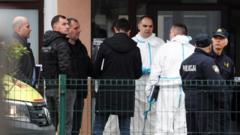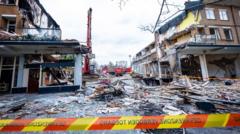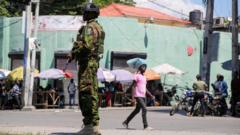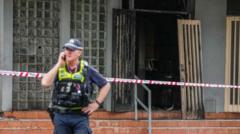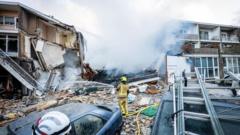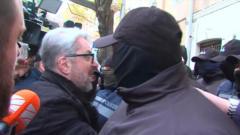Médecins Sans Frontières (MSF), known for its humanitarian medical efforts, has ceased operations in Port-au-Prince following violent episodes involving its personnel and the killing of patients by local police. This suspension reflects an alarming escalation of violence in Haiti, coinciding with political instability.
**MSF Suspending Operations in Port-au-Prince Amid Escalating Violence**
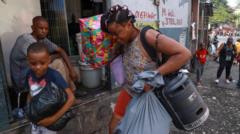
**MSF Suspending Operations in Port-au-Prince Amid Escalating Violence**
Médecins Sans Frontières halts work in Haiti due to violent attacks on staff and patients, sparking concerns over the country’s security situation.
In detail:
The humanitarian organization Médecins Sans Frontières (MSF) announced the suspension of its operations in Haiti's capital, Port-au-Prince, after an incident involving its staff and patients resulted in fatalities. Last week, an MSF ambulance was reportedly attacked by a group consisting of law enforcement officials and paramilitary members, leading to the execution of two gunshot victims. This brutal episode has intensified concerns surrounding the safety of medical personnel in the city.
According to MSF, on November 11, one of its ambulances was intercepted by Haitian police, and during the confrontation, the authorities forcibly removed two patients from the vehicle. Investigation reports indicate that the group subsequently executed the patients outside of a medical facility. MSF condemned the violence in a vehement statement, highlighting that their team experienced tear gas exposure and was held captive for several hours during the attack.
The violence in Port-au-Prince reflects a broader trend of rampant crime and gang activity in the region, with approximately 25 individuals reported killed in violent confrontations on one day alone. This surge of violence follows ongoing political turmoil, including the recent ousting of interim Prime Minister Garry Conille, which adds further instability to an already fraught environment.
In response to the escalating crisis, residents of the residential suburb of Pétion-Ville organized to defend their neighborhood against gang attacks. Community members took precautionary measures, barricading streets and arming themselves with rudimentary weapons as threats loomed large.
The current situation in Haiti depicts a convergence of humanitarian challenges exacerbated by insecurity and political upheaval, raising urgent questions about the future of humanitarian efforts in the country. MSF's withdrawal underscores the precarious conditions under which health workers are operational in desperate regions, further demanding attention from both local and international bodies, emphasizing a need for concerted efforts to restore safety and stability in Haiti.
The humanitarian organization Médecins Sans Frontières (MSF) announced the suspension of its operations in Haiti's capital, Port-au-Prince, after an incident involving its staff and patients resulted in fatalities. Last week, an MSF ambulance was reportedly attacked by a group consisting of law enforcement officials and paramilitary members, leading to the execution of two gunshot victims. This brutal episode has intensified concerns surrounding the safety of medical personnel in the city.
According to MSF, on November 11, one of its ambulances was intercepted by Haitian police, and during the confrontation, the authorities forcibly removed two patients from the vehicle. Investigation reports indicate that the group subsequently executed the patients outside of a medical facility. MSF condemned the violence in a vehement statement, highlighting that their team experienced tear gas exposure and was held captive for several hours during the attack.
The violence in Port-au-Prince reflects a broader trend of rampant crime and gang activity in the region, with approximately 25 individuals reported killed in violent confrontations on one day alone. This surge of violence follows ongoing political turmoil, including the recent ousting of interim Prime Minister Garry Conille, which adds further instability to an already fraught environment.
In response to the escalating crisis, residents of the residential suburb of Pétion-Ville organized to defend their neighborhood against gang attacks. Community members took precautionary measures, barricading streets and arming themselves with rudimentary weapons as threats loomed large.
The current situation in Haiti depicts a convergence of humanitarian challenges exacerbated by insecurity and political upheaval, raising urgent questions about the future of humanitarian efforts in the country. MSF's withdrawal underscores the precarious conditions under which health workers are operational in desperate regions, further demanding attention from both local and international bodies, emphasizing a need for concerted efforts to restore safety and stability in Haiti.



